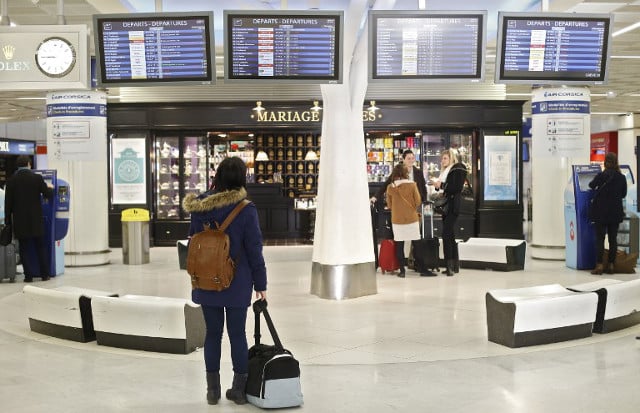According to the DGAC, the French civil aviation authority around 430 flights either to, from or over France, were cancelled on Wednesday.
Among the airlines that had to cancel planes were budget companies Ryanair and EasyJet. Ryanair had to scrap 66 services, including 18 in and out of Paris Beauvais airport and 10 at Marseille while EasyJet had to ground 50 flights for airports all over the country.
A statement from Ryanair read: “Due to a third day of French ATC union strikes, we regret that we have again been forced to cancel a number of flights today (8 Mar). All affected customers have been contacted by email and SMS text message and advised of their flight options and delays are likely, with possible further cancellations.
We again urge all customers to sign the A4E online petition, Keep Europe's Skies Open to help protect Europe from repeated disruption by these ATC unions.”
Another budget airline Vueling had to cancel 22 flights.
A list of many of the cancelled flights can be seen here.
Air France was also hit, in particular its internal services from Orly airport in Paris and domestic airports.
All of Air France’s long haul flights should run as scheduled.
Airports across the country are badly affected including Brest, Bordeaux, Marseille, Nice and Aix-en-Provence.
Passengers whose flights have been spared the raft of cancellations have been warned that they face delays.
The strike which is being held by the Unsa union due to staff grievances over working conditions and hours will run until Friday March 10th.



 Please whitelist us to continue reading.
Please whitelist us to continue reading.
Member comments